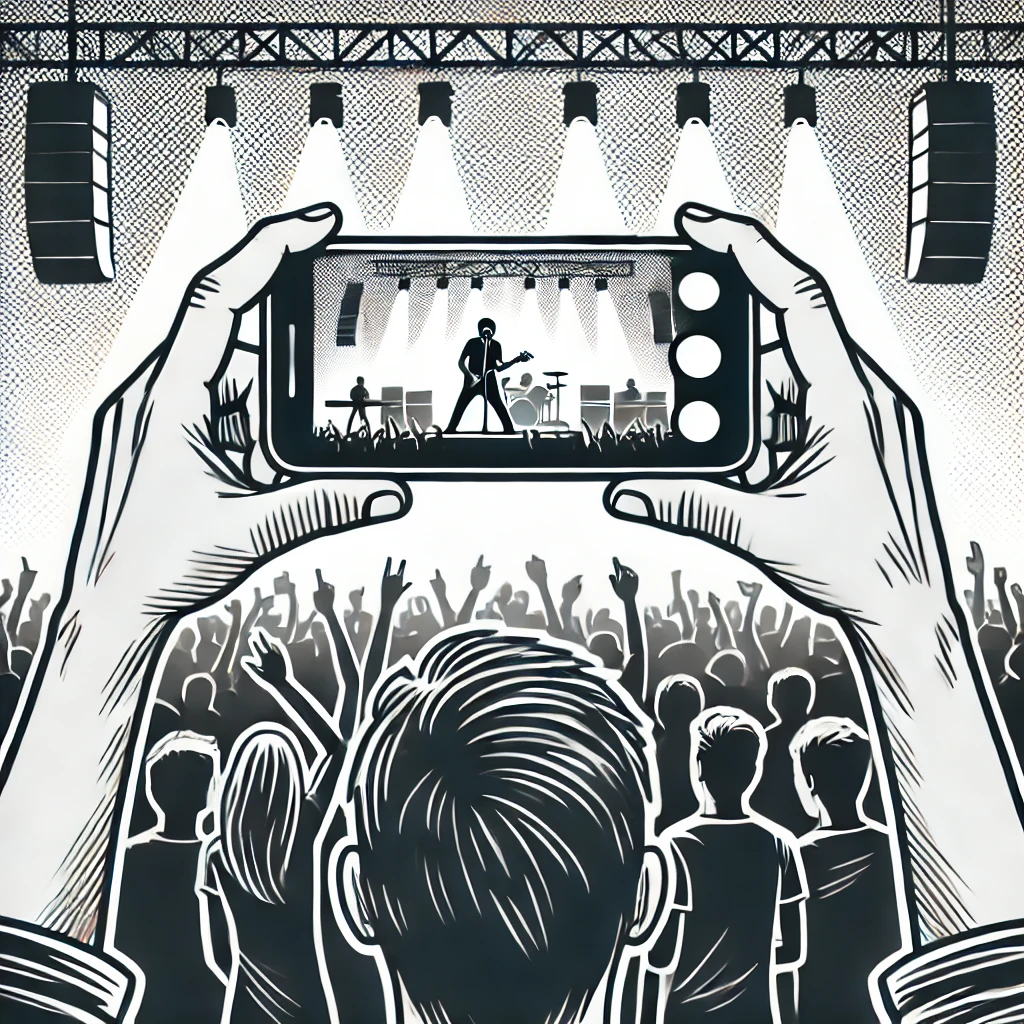Ever been to a concert and seen an entire sea of glowing phone screens? Instead of enjoying the moment, people are filming, hoping to relive it later—or rack up likes on social media. But beyond the question of “why bother recording at all?” there’s a bigger one: is it even legal to record and share a concert in Canada?

The Short Answer? Technically, No
Under Canadian copyright law, the rights to a song or performance belong to the artist (or their record label). That means you’re technically making an unauthorized copy of copyrighted material when you pull out your phone and hit record. Share that concert? That’s distributing it without permission.
Venues also play a role. Many have policies explicitly banning recording, and some artists are strict about enforcing them. Prince, for example, had a well-known zero-tolerance policy for concert recordings. Try filming at one of his shows, and security would have shut that down fast.
That said, just because something is illegal doesn’t mean you’ll get arrested for doing it.
Will You Actually Get in Trouble if You Share a Concert?
Realistically, no one’s coming after you for filming a 30-second clip of your favorite song and posting it on Instagram. The industry isn’t chasing down fans with shaky, low-quality videos.
The only time you might land in serious legal trouble is if you’re professionally recording a concert. If you set up high-end audio and video gear and start distributing your recording, expect to hear from a lawyer. Otherwise, for everyday concert-goers, enforcement is rare.
What About Posting on Social Media to Share a Concert?
Social media makes it easier than ever to share a concert, but this is where things get murky. Technically, uploading a concert video to YouTube, Instagram, or TikTok could be considered unauthorized distribution. And platforms do sometimes take action—YouTube, for instance, uses automated copyright detection to flag and remove videos containing copyrighted audio.
The case of isoHunt is an extreme example. The torrenting site allowed users to share copyrighted music and movies, and after a lengthy legal battle, it was shut down in 2016, with its founder held liable for $65 million in damages.
Now, are you going to be hit with a multimillion-dollar lawsuit for posting a 10-second clip of a Taylor Swift concert? Not likely. But artists and labels do have the power to issue takedown notices.
Are There Any Legal Loopholes If You Share a Concert?
Yes—fair dealing.
Canada’s copyright law allows some exceptions where copyrighted material can be used without permission. These include:
- Education or research – A music student studying stage presence might be able to record parts of a concert for analysis.
- Criticism or review – A journalist reviewing a performance could legally include short clips.
- Parody or satire – If you’re remixing a concert clip into a joke or meme, you might be covered.
But fair dealing is not a free pass. Courts look at factors like how much of the work is used and whether it financially impacts the artist. A few seconds of footage? Probably fine. Want to share the full concert? A full professional recording? Not so much.
What About Songs in the Public Domain?
Even if a song itself is public domain (like “Happy Birthday”), a live performance of that song can still be copyrighted. So just because a band covers an old classic doesn’t mean you’re free to record and distribute it.
The Bottom Line (Can You Share a Concert)
- Filming and sharing a concert is technically illegal under Canadian copyright law.
- However, enforcement is rare for short, low-quality recordings.
- Social media platforms can take down videos if copyright holders complain.
- Fair dealing might apply in some cases, but it’s not a guaranteed defense.
- The safest way to record a concert legally? Get permission from the artist and venue.
At the end of the day, the real question isn’t “can you share a concert?”—it’s “should you?” If you’re blocking someone’s view with your phone, annoying the people around you, or missing out on the actual experience, maybe it’s time to put the screen down and enjoy the moment.
Author: Ryan Mercer
Bio: Ryan Mercer is a media law analyst with expertise in copyright enforcement and digital content rights, focusing on how emerging technology affects intellectual property laws.


